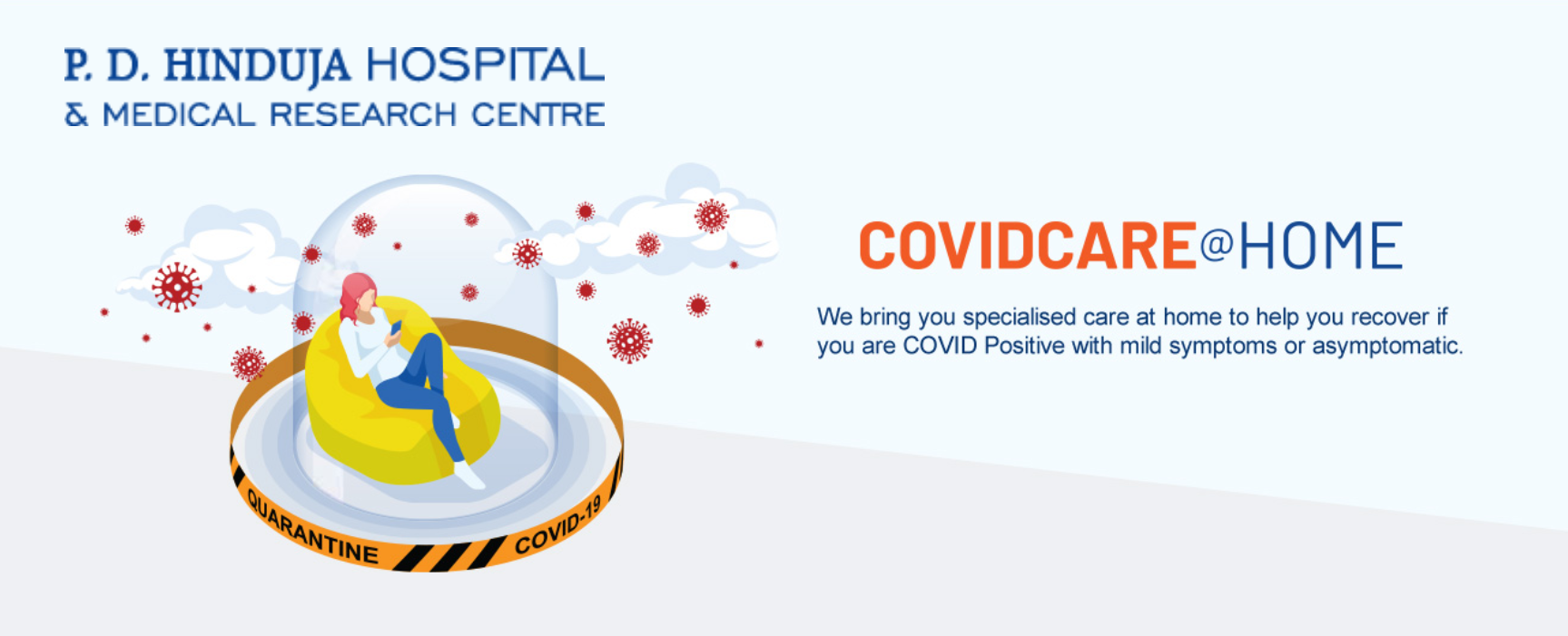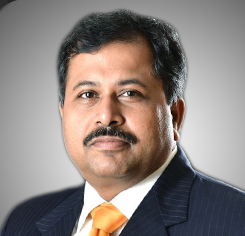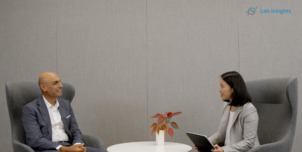As one of India’s leading private hospitals, P.D. Hinduja Hospital & Medical Research Centre provides premium service that focuses heavily on patient experience. Based in Mumbai, the multi-specialty hospital has a strong reputation in a market where demand for high-quality healthcare services is rising rapidly.
The Lab Insights team recently spoke with Mr. Joy Chakraborty, Chief Operating Officer at P.D. Hinduja, to understand how his hospital is addressing the challenges posed by COVID-19.
A longstanding commitment to patient centricity
Long before COVID-19 came to India, P.D. Hinduja Hospital was an early adapter of remote care models that are gaining ground in the current pandemic. Back in 2006, for example, the hospital launched a Care@Home business that now includes home-based sample collection, phlebotomy, physiotherapy, nursing care, x-ray services and physician consultations.
Just a few years later, P.D. Hinduja was among the first private hospitals in India to get into telemedicine, even though regulatory restrictions on the practice were tight at the time. Physicians were discouraged from holding an initial consultation with a patient by phone or online, and they were not allowed to deliver prescriptions virtually or consult with patients outside of the state where they were registered.
“The regulatory environment made telemedicine hard and initially caused us to put it on the back burner,” recalls Mr. Chakraborty. “But after COVID-19, the authorities realised that if the service is not in practice, patients will lose continuity of care, so they recently passed a new order that removed some of the restrictions.”
In recent years, P.D. Hinduja also made major investments to improve its digital infrastructure. One goal was to ensure that patients could access healthcare services, issue payments and generally interact with the hospital system digitally. “Our entire system today is built around a high-end information technology architecture that makes the patient experience seamless,” he notes.
A patient needing lab work, for instance, might receive a call or email before their appointment to get advice on how to prepare for the test, plus information on why they are getting the test and the expected turnaround time. After the test is complete, they can opt in to get digital notifications at various points in the process, such as when the sample has been taken, when it has been processed and when results are ready.
“By setting clear expectations and meeting our commitments with lab services, we aim to optimise the patient experience and reduce dissatisfaction,” says Chakraborty. “Increased patient centricity is one of the most critical changes happening in the super specialty space.”
Reaffirming patient centricity in the COVID-19 era
When the COVID-19 pandemic erupted in India, P.D. Hinduja Hospital faced the same challenges as most other providers in the country and around the world. Almost overnight, demand for routine care services plummeted and while inquiries related to the virus skyrocketed.
In the first few weeks of the pandemic, the hospital saw bed occupancy rates drop from over 90% to just 30%, and steep decline in outpatient volumes as well. In the clinical lab, which does a large volume of work for outside hospitals and labs that outsource high-end tests to P.D. Hinduja Hospital, demand for non-COVID related testing also fell precipitously.
To address these challenges, hospital leaders sprang quickly into action. Unlike many other hospitals in India, they applied for and received government authorisation to run COVID-19 testing. Leveraging their existing capabilities in remote care and telemedicine, they announced new services for COVID-19 patients too.
One example is COVIDCARE@HOME [1] service, a comprehensive home care service for COVID-positive patients who are mildly symptomatic or asymptomatic. Launched in July 2020, the service is priced at US$65-150 per 14-day period. Basic packages include tele-consultations with health professionals, while higher-end packages include counselling services and home delivery of medical supplies like masks, gloves and self-monitoring equipment.

“At a time when there is a shortage of hospital beds in the whole of Mumbai, this was our way of creating additional infrastructure to serve patients,” says Chakraborty. “With testing, treatment and home care, we had the unique ability to treat patients from end to end.”
Remote consultation services were also helpful for non-COVID patients, particularly in the initial months of the outbreak when the hospital had to close its outpatient facilities. Even after they started to reopen the facilities in July, roughly half of outpatients still prefer tele-consulting to in-person visits.
For COVID-19 inpatients, P.D. Hinduja Hospital made extra efforts to optimise patient safety, such as opening windows to improve air circulation and dividing the hospital into special zones to keep infected and non-infected patients separate. They currently have a separate, dedicated building for COVID-19 treatment that is set apart from the regular hospital outpatient and inpatient buildings.
P.D. Hinduja Hospital also created special services to maximise patient comfort, including offering tele-consultations with psychiatrists for inpatients.
“Think about it from the patient perspective: these people are away from their families and surrounded by doctors and nurses in full PPE,” remarks Chakraborty. “They are dealing with a dangerous disease, and they can’t even see a human face. It understandably causes a lot of fear and anxiety, and we want to do everything to give them the strength to fight in this scenario.”
Happy employees, happy patients
Like the patients they serve, healthcare workers also face unfamiliar stresses during the COVID-19 pandemic. To prevent these stresses from impacting their ability to provide exceptional patient care, P.D. Hinduja Hospital enacted special measures to maintain employee morale.
Due to lockdowns, for example, many staff had trouble finding suitable transportation for their commute, so P.D. Hinduja Hospital’s management created special accommodation facilities within the hospital for those who cannot travel, and provided charter bus services for the rest. They also launched employee wellness programmes that included special events, yoga and meditation classes, and other services to help their staff stay sharp and focussed.
For staff that may become infected with the disease on account of their work, management also set up special isolation and care centres. “We want to give our people reassurance that if something happens to them, we will take care of them,” says Chakraborty. “This keeps them motivated to continue providing patient-centric care in challenging times.”
While the COVID-19 situation has not been easy for most providers, digitally savvy and patient-centric hospital groups like P.D. Hinduja Hospital are in a great position to weather the storm. With progressive leadership and a willingness to innovate, P.D. Hinduja Hospital may ultimately emerge even stronger in the post-pandemic era.
References:
[1] P.D. Hinduja Hospital and Medical Research Centre’s COVIDCARE@HOME initiative







